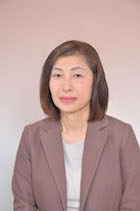Prof Atsuko K. Yamazaki
Shibaura Institute of Technology, JapanNeurological factors for knowledge-based systems: NIRS studies as examples
Abstract:
Along with recent progress in neuroscience research, interpreting neuroscience research results in terms of human cognition and behavior has been recognized as a key for developing knowledge-based systems based on human factors. In addition, neuroscience techniques have now become more accessible to researchers in Knowledge Engineering fields. Neuroimaging, one of the techniques often utilized in neuroscience, can be effectively used to investigate activity and function in the brain. Functional neuroimaging studies in Knowledge Engineering focus on which areas of the brain perform specific tasks in relation to system enhancement by using such techniques as functional magnetic resonance imaging, electroencephalography and near infrared spectroscopy (NIRS). Bridging neuroscience data and a knowledge-based system is indispensable in order to build a system based on humans' tacit knowledge. However, it is by no means easy to incorporate neuroscience into knowledge-based engineering due to the difficulties of designing a human-factors study, of measuring neuroactivities and of interpreting the data, which often requires specialized knowledge both in neuroscience and in physiology. In this talk, the speaker will introduce some NIRS studies conducted by her research groups, for example, leveraging neuroimaging techniques for incorporating such human factors into knowledge-based systems. The results of the studies will be presented not only in association with human-system interaction, but also human-human communication.

Biography:
Atsuko K. Yamazaki is Professor at Shibaura Institute of Technology, where she teaches communication studies and conducts research in the areas of information science, systems engineering, human communication studies and global education in engineering. She holds the following degrees: BS in Chemistry, Ibaraki University; MA in TESOL, Monterey Institute of International Studies; MS in Computer Science, University of Maryland; and Ph.D. in Systems Engineering, Wakayama University. She has held leadership positions in the IEEE Professional Communication Society and the Japan Association of College English Teachers. She was an adjunct research instructor at the Naval Postgraduate School in Monterey, California and a visiting researcher at The Woods Hole Oceanographic Institution. She joined the Institute of Technologists as an Associate Professor in 2001 and moved to Shibaura Institute of Technology in 2008. Her work has been published by Ecological Modelling, Deep-Sea Research, IEEE, KES, Japan Society for Artificial Intelligence, Japanese Society for Information and Systems in Education, and others. Her current research projects include studies of user-interface designs to enhance brain activity in the elderly, and human cognitive activities for human-system communication from neurological aspects. She has also been leading projects for developing ICT & IoT systems to assist small and medium farming operations. She has been serving as Chair for an Invited Session: Human Factors for Communication & Intelligent Systems, at KES conferences since 2014.
Back to Keynote Speakers


